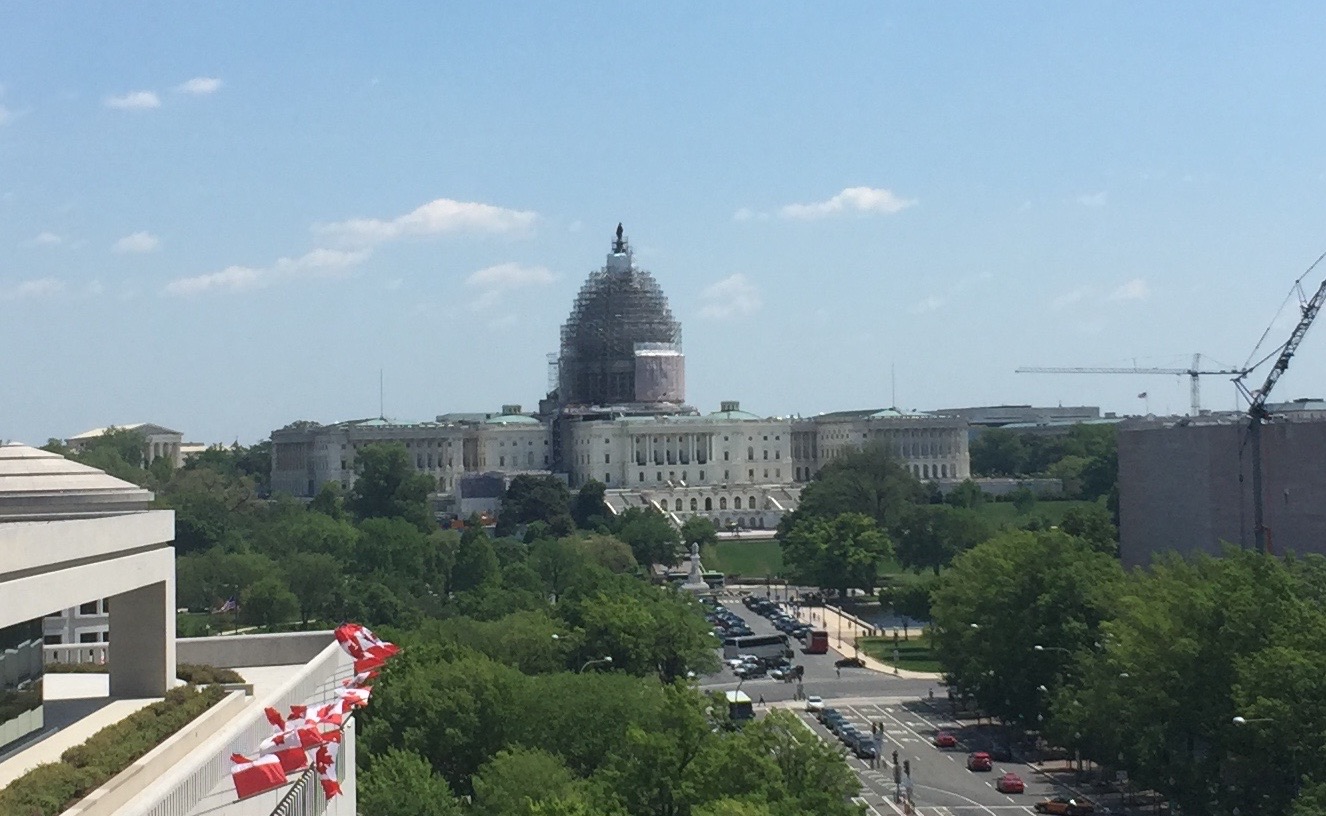Podcast: Play in new window | Download

CLOSING TIME? The Capitol is under reconstruction, but how much work will continue if the government closes on Oct. 1.
Once again Congress is having a hard time passing a budget — and time is running out. The federal government spends money and runs its programs from October 1st through the end of September. So every year the House and the Senate are supposed to enact appropriations and then pass on that legislation to the president for his signature.
That is how it is supposed to work.
But right now the entire process is chaotic. Think of Congress this way. There are really three-parties in the House and in the Senate; Republicans (the party in charge), Democrats and Tea Party supporters. It’s this third group who are holding up the budget by saying “no” at every opportunity. Congress could get out of this by letting Republicans work with Democrats on moderate spending bills — something that does happen in state Legislatures from time to time. And that might be the only route ahead.
There are several issues dividing Congress ranging from the amount of debt the country has (think of a credit card limit) to how much money flows from government checks to Planned Parenthood. That last item is the big one this time. Some conservative members of Congress say they will not support any budget that includes Planned Parenthood. It’s all because of a series of videos that purport to show illegal activities. But Planned Parenthood does many other things — such as distribution of birth control pills — and federal money already cannot be used for abortion. So it’s unlikely the president will agree to any budget that doesn’t continue funding women’s health programs and that includes Planned Parenthood.
Pretty much everyone in Washington says they do not want a government shutdown. But there is really no incentive to get beyond those words. One budget expert recently told Politico magazine that there is a seventy-five percent chance of a shutdown.
Closing down government, even briefly, is rough. Two years ago the government closed from October 1 through October 16, 2013. Some 800,000 employees were furloughed and another 1.3 million had to work for those days without pay.
Across Indian Country a government shutdown not only impacts federal employees, but it means tribes have less money and have to lay off employees as well. Two years ago, for example, Montana’s Crow Tribe had to lay off some 300 people as well as closing essential reservation programs. Even some health clinics (which are supposed to be protected) had to close temporarily.
One idea in Congres is to fund Indian health, and even better, tribal schools as well, a year in advance. Then when Congress cannot do its job, at least Indian Country won’t suffer needlessly. But Congress didn’t get around to that idea either.
So here we go again with another waste of time and money.


